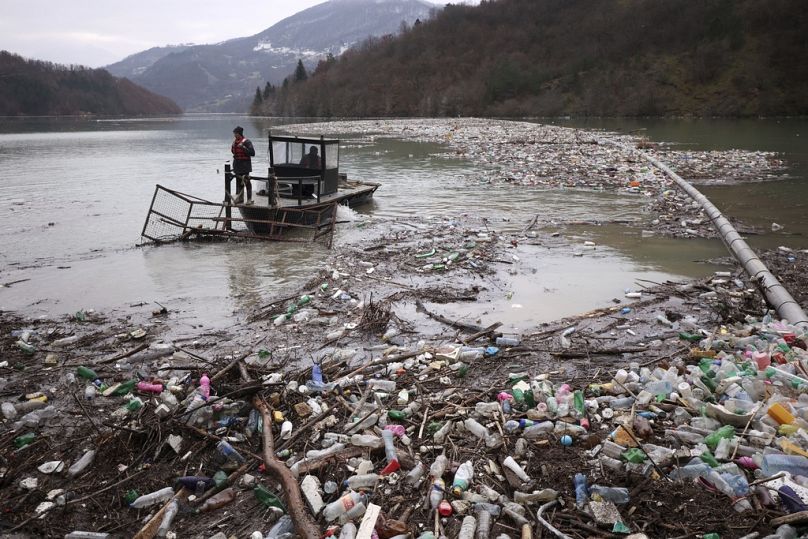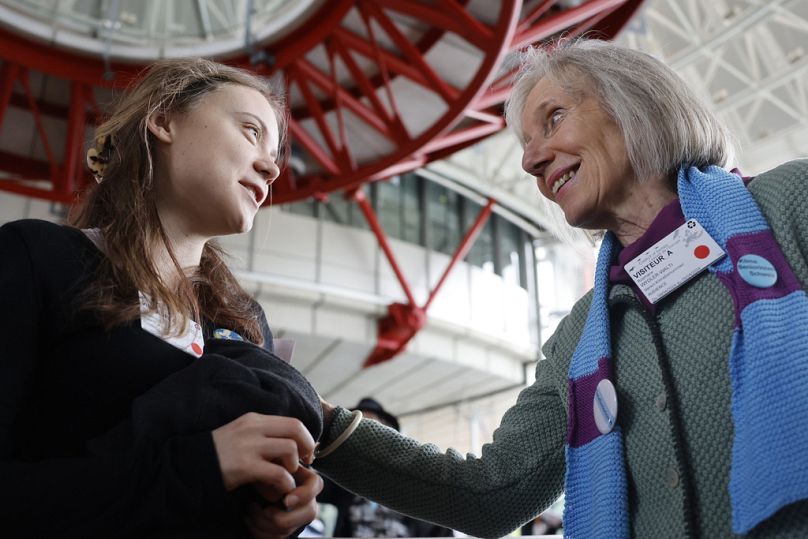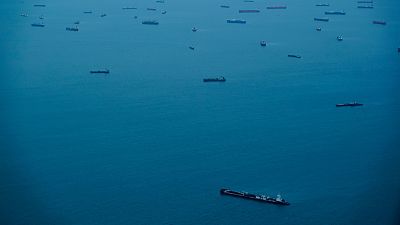A brave group of 2,000 women proved — collectively — that the right to a healthy environment had been violated by Switzerland’s failure to take effective action to restrain global warming, Sian Sutherland writes.
A predictable pile-on is occurring against the European Court of Human Rights. For some people, it can do no right.
But its landmark ruling this week that weak climate policies in Switzerland put older women at greater risk of death from heatwaves is a precedent to welcome — and a warning to governments.
To be clear, this is not some vexatious litigants’ charter. The court actually ruled out the right of any one individual to cite climate change — and inaction to remedy it — as a threat to their personal right to life.
This week’s decision is about the right of groups of people to enjoy a “healthy environment”, which is a long-established principle of case law under Article 8 of the Convention.
In this instance, a brave group of 2,000 "senior" women proved — collectively — that this right had been violated by Switzerland’s failure to take effective action to restrain global warming.
Threats to human health keep going unnoticed
An acknowledgement that groups of people are disproportionately affected by climate change opens the door to other actions where governments are failing to protect their citizens.
A prime example is plastic production, which involves over 16,000 chemical components, of which a third present a threat to human health and to the environment on which humans depend.
More than 400 hazardous chemicals are found in every major commonly used plastic product, including food packaging. Yet only 6% of the many and varied chemicals in plastic are regulated, negligence every bit as profound as that of Switzerland on climate action.
In terms of the groups this majorly affects, you are spoilt for choice. You could pick men. Sperm counts have dropped 60% since 1973 and — if current rates continue — then by 2040, four out of five men could suffer from infertility. By 2045, sperm counts could reach zero.
Or you could pick women. Females with higher levels of "forever chemicals" found in plastic in their blood have a 40% lower chance of becoming pregnant within a year of trying to conceive.
Meanwhile phthalates — chemicals which make plastic durable — have been shown to increase the risk of miscarriage and gestational diabetes.
We're all under threat, so why are we against action?
In other words, humankind as a whole is under threat. Endocrine-disrupting chemicals (EDCs), such as bisphenol A found in plastics and per- and poly-fluoroalkyl substances (PFAS) interfere with the body's natural hormones to devastating effect.
Yet governments — including our own — are simply not moving fast enough to stem the tide of plastic production.
Globally, virgin plastic production has risen from two million tonnes per year in 1950 to 367 million tonnes in 2020. It is projected to exceed one billion tonnes per year by 2050.
What is to stop another brave group, of women, of men — of human beings — bringing action in the ECHR against the manifold failures of governments to turn the tide? And why would anyone want to stand in their way?
There are plenty of people weighing in to accuse the judges of being "undemocratic". They forget that Britain is only a member of the ECHR for as long as elected governments choose to keep us there.
For 74 years, all political parties have done so because the rights embodied by the Convention are a British creation: the foundation stone for civilised societies, sculpted and laid by British hands.
Of course, rather than be taken to court again, there is a chance for those in political office to stand up for citizens against Big Oil right now — without judicial intervention.
It's time to ignore the pleads of those driven by money
In 10 days time, it will be crunch time at the fourth session of the UN’s Intergovernmental Negotiating Committee developing a global plastics treaty in Ottawa, Canada. This has been a fraught process and risks ending in a ‘lowest common denominator’ outcome which pleases the plastics giants and nobody else.
But an international agreement that does prioritise human health is still within the world’s grasp if European and US leaders choose to reach out and grab it.
The brilliant and courageous scientists behind the Plastic Health Council have set out a blueprint, detailing the clauses that must be included in the final Treaty to protect human health.
With hundreds of years of experience in this subject between them, they lay out the path to a treaty which will cut plastic production at source, rather than simply focus on the waste ever-growing production creates. A treaty that protects the health of our people rather than the profits of the fossil fuel industry.
Of course, Big Oil will kick and scream to achieve the opposite, raising the spectre of economic Armageddon if their industry is restrained. But if nothing else, this week’s ECHR ruling is a timely warning to governments to ignore such special pleading and follow the science.
Sian Sutherland is Co-Founder of A Plastic Planet, which hosts The Plastic Solutions and Health Summit in Washington DC.
At Euronews, we believe all views matter. Contact us at view@euronews.com to send pitches or submissions and be part of the conversation.





